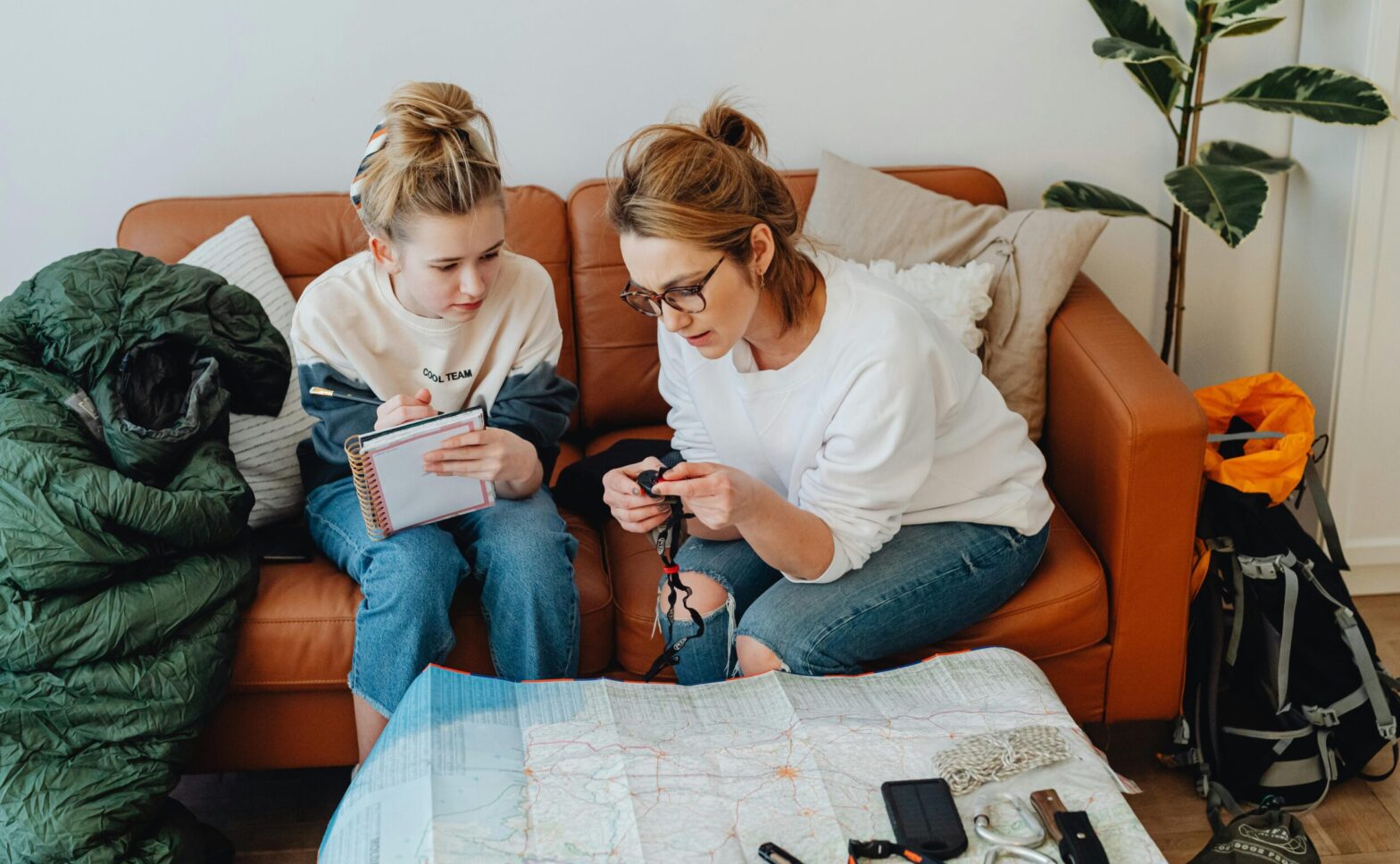Holidays are precious. And it seems bitterly unjust when we fall ill as soon as we start to relax. Unfortunately this leisure sickness is a common experience. But while anyone can be unlucky, we can also take some easy precautions that reduce the risk of having a holiday ruined by illness.
This article aims to explore some of the causes of leisure sickness abroad, and to suggest some practical ways to remain healthy while we enjoy a break.
Why do we often get sick while we’re abroad?
There may not always be a simple answer. However, we can break down the causes into 3 broad categories:
- External factors, including geographically specific hazards.
- Our own behaviours
- Stress or dramatic changes
The good news is that not everyone gets sick every time they go on holiday. But few regular travellers will escape completely. The trick, therefore, is to be aware of possible causes and do everything reasonable to minimise risk. I stress the use of “reasonable”. It’s not worth obsessing over this. That would be just as disruptive as being unwell, and it will ruin your holiday just as effectively. Instead, think ahead in order to take practical precautions.
Leisure sickness and our immediate environment
Some factors are difficult to avoid, and it’s a common experience to pick up a cold while on a plane or travelling long distances in a train. Being well-rested and having a diet which supports a healthy immune system goes a long way to reducing the chance of infection.
A common complaint is travellers’ diarrhoea. Most often this is caused by water or food contaminated by bacteria, viruses or parasites. Frequently these are low level irritations and not noticed by the local population – but to your body they are unfamiliar and can cause a reaction.
Otherwise the cause is likely to be poor hygiene. That could be in the food supply chain, or where kitchen staff have not washed their hands before preparing food. Sometimes it’s just bad luck, like the Nile cruise I once joined where one of the passengers arrived with norovirus. The results were predictable and dramatic for passengers and crew alike.
There are some simple precautions to reduce the risk of becoming ill in this context.
- Be scrupulous to maintain your own personal hygiene, including using a hand sanitiser gel before eating.
- Drink bottled water
- Avoid ice in your drinks – it may not have been made with clean water – and insist on “no ice” at all times. Just be happy with a cool drink from the fridge.
- Avoid salads, cold meats, and similar – no matter how tempting they look. They may not have been properly chilled or prepared hygienically. Stick with hot cooked food.
Naturally, these are personal choices and, especially on longer holidays, you may consider the risk worth taking. Just think about it first.
Leisure sickness and geographical hazards
The hazards (mostly minor) associated with visiting different parts of the world vary widely. Even summarising them would take more space than is available here. However, one is definitely worth mentioning: Malaria.
Malaria is a dangerous mosquito-borne disease. Untreated, it can be life-threatening. So if you’re travelling to the tropics prepare properly 2 or 3 months before you go. Seek medical advice as to the most appropriate anti-malarial medications for the region you’re visiting. Be aware of the symptoms and that they may present after you return home. In that case be sure to tell your GP or medical advisor where you have been and that it is a malarial zone. Insist you are checked for malaria.
Leisure sickness and our own behaviours
It’s easy to forget that we can control several factors affecting our health. Hygiene is one of them. Other behaviours are important too. In particular, be careful anything that may reduce the effectiveness of your immune system. These can include
- Lack of sleep (who hasn’t been up late in the week before a holiday, and who hasn’t sat chatting too late into the night on a balmy first evening away?)
- Too much alcohol (which affects sleep quality and may also be leaving you dehydrated)
- Eating too much, combined with a different diet: for example, you may end up eating a full meal twice a day instead of the once you are used to. Or, if you eat meat only occasionally at home but suddenly feast on large steaks every evening (an easy and tempting possibility in Cape Town or Buenos Aires) then expect your gut to struggle. It’s the same for anything eaten to excess. Enjoy food in moderation.
- Too much time in the hot sun (even with plenty of sunscreen and a hat): as the frequency of heatwaves increases this is a real issue – manage your time in the sun carefully and stay hydrated. If you don’t see locals on the streets between late morning and mid-afternoon, there’s probably a good reason. Organise your activities accordingly and enjoy a siesta instead of rushing about.
- Avoid enclosed crowded spaces where germs are easily transmitted. That’s not easy if you enjoy nightclubs, or habitually end up in packed restaurants. If those are features of your holiday, compensate by ensuring other routines like good sleep and exercise are not abandoned completely.
- Finally, check bathing water quality. It’s not a problem unique to the UK!
Leisure sickness and stress
Our bodies are remarkably tough, but also surprisingly vulnerable. And the very fact of going on holiday might trigger what’s known as the “Let-down Effect.” This is a common experience after a prolonged period of time relying on our physical, emotional and mental resilience.
When we live or work in a stressful environment (something which has become normalised for many), our bodies become used to the high levels of the stress related hormones, adrenaline and cortisol. With the stress removed (suddenly we’re relaxing by a pool, not caught up in life’s daily struggles) we automatically produce less of these hormones. One consequence is that, because our immune systems don’t adjust as quickly, we’re more likely to feel tired, and to catch minor illnesses like a cold. And what’s ‘minor’ in clinical terms, can still be enough to ruin a holiday.
Is there a solution? There are two ways. The first is to make lifestyle adjustments before you go on holiday. Ensure good sleep ‘hygiene’ (regular bedtimes, enough good quality sleep) and maintain regular moderate exercise.
The second approach – you can do both – is to plan activities for the start of your holiday. That way you can create a gradual transition between working full-on and doing almost nothing. Avoiding the cliff-edge effect in this way will help you adjust better and enjoy your holiday more.
Holidays are to enjoy
When travelling abroad, preparation is often the key to enjoying the trip and remaining healthy. Nothing in the preparation need be difficult or onerous. Mostly it’s common sense. The trick is to remember to put into practice what you already know.
By Declan Morton, writer and editor at Essiell Ltd and Money4Travel. More about the author.



